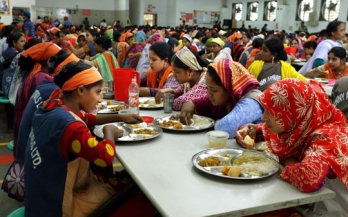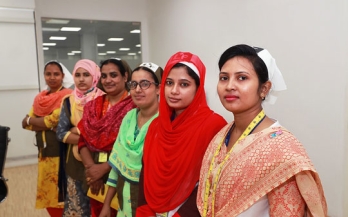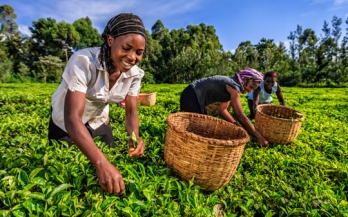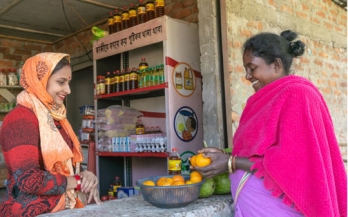GAIN undertook an assessment of existing workforce nutrition-related policies to identify opportunities for improvement and generate insights into how policymakers and other policy stakeholders can contribute to healthier work environments. This briefing paper summarises the findings of a cross-cutting policy assessment for 12 countries across Africa, Asia, and Latin America.
In 2019, in an effort to improve the efficiency and sustainability of its programming, GAIN’s Workforce Nutrition Programme (WFN) shifted away from the traditional project development and evaluation cycle towards a nimbler "Quality Improvement" (QI) approach.
The burden of malnutrition in Mozambique is marked by high rates of child stunting (38%) and micronutrient deficiencies among women of reproductive age as well as an increasing prevalence of overweight among adult men and women (18% and 34% respectively). There is a continued need to engage all actors and options to address the malnutrition burden the world faces.
Uganda is a low-income country in which 41% of the population lives below the poverty line, and where about 82% of the population cannot afford a healthy diet. There is a continued need to engage all actors and options to address the malnutrition burden the world faces.
Workforce nutrition is an opportunity to deliver proven benefits for employers, workers, and communities. A definition and framework for workforce nutrition can be found here.
Limited access to markets and poor market infrastructure are underlying factors that negatively impact nutrition outcomes for the rural poor in hard-to-reach areas, including communities working on tea estates in India. An innovative and sustainable market-based supply chain model was tested in Assam, India, to improve the nutrition of the tea estate communities.
As elaborated in a GAIN evidence brief, poor-quality diets and insufficient food quantity are linked to reduced work capacity. This suggests that the malnutrition burden can be partly addressed through a win-win-win approach which improves individual lives, business outcomes, and national economies.
As elaborated in a GAIN evidence brief, poor-quality diets and insufficient food quantity are linked to reduced work capacity. This suggests that the malnutrition burden can be partly addressed through a win-win-win approach which improves individual lives, business outcomes, and national economies.
As elaborated in a GAIN evidence brief, poor-quality diets and insufficient food quantity are linked to reduced work capacity. This suggests that the malnutrition burden can be partly addressed through a win-win-win approach which improves individual lives, business outcomes, and national economies.
As elaborated in a GAIN evidence brief, poor-quality diets and insufficient food quantity are linked to reduced work capacity. This suggests that the malnutrition burden can be partly addressed through a win-win-win approach which improves individual lives, business outcomes, and national economies.










